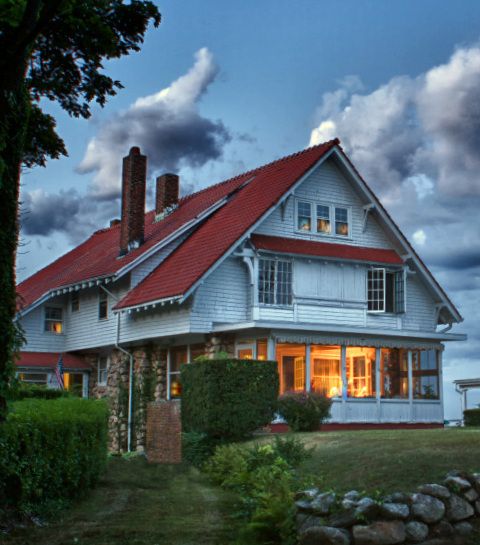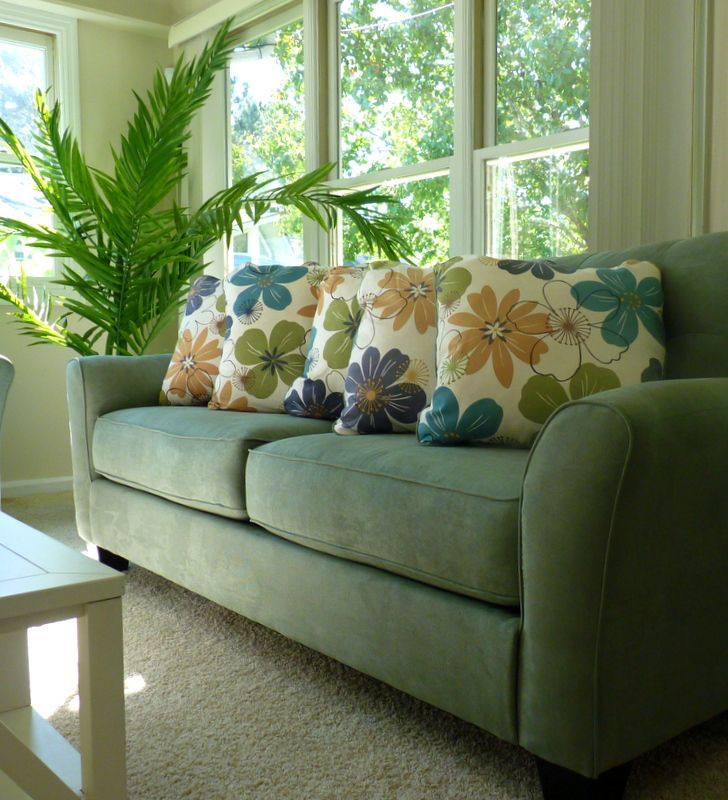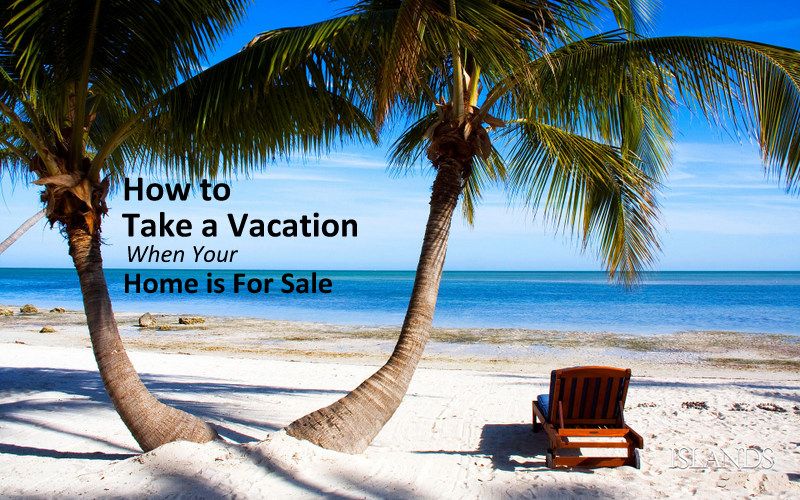 |
| Your home can look inviting even when you're not there. But you might be attracting trouble, as well as buyers. |
When your home is for sale and you want to take a vacation, you’re faced with two kinds of challenges.
The house needs to be secure but not look like a fortress. And it needs to stay tidy even though no one is home maintaining it.
A gal I know – we’ll call her Janelle -- staged her own home and it looked beautiful. Then she took a week off to cruise the Caribbean.
When she returned she was surprised to find that while she was gone neighborhood kids had been sneaking into her home at night to party. A watchful neighbor noticed the activity and called local police, who insisted that she press charges for breaking and entering.
It’s the kind of thing that can happen to anyone who is away from home for more than a couple days.
You deserve a getaway, so here are the simple things you can do to protect your home, not worry about it, and help it maintain that fluffed-up look.
Before you leave
Keeping your home safe from troublemakers should be a primary concern. Some of these tips are obvious, but are still worth repeating.
Look occupied. Stop the mail. Choose between having a neighbor save it for you, or notifying the postal service to hold it.
Go bright. I used to be a big fan of timers on lights. Now, that system is replaced by smart light bulbs! Here's the scoop on how smart lights function to make your home look lived in.
Motion-activated exterior lights are good deterrents, don't cost much, and can be easy to install.
 |
| Some valuables are safer hiding in plain sight. Devices like this container are called "diversion safes." You can buy or make them. Photo: Diversion Safes. |
Hide valuables. Thieves, should they find a way to get inside, know where people customarily store things of worth.
The first place they look for small valuables is the master closet. So, think outside the box, and consider places like your cleaning closet or laundry room, using containers that look ordinary and generic.
Hide prescription medicines, jewelry, cash, debit and credit cards, flash drives, and personal information like bank records, school notices, billing statements, and tax returns.
Here are 15 different DIY ideas on where to hide articles in your home.
Stay low. Don’t announce or post about your trip on social media until you are back home. Remember that the more people know about your absence, the greater the likelihood of a break-in.
Maintain appearances. Make sure the exterior of your home doesn’t look neglected. Hire a lawn service (or neighborhood youngster) to mow the lawn, sweep the steps or driveway, service the pool, or do whatever else will give the appearance that your place is occupied. Encourage neighbors to use your driveway or parking space while you’re gone.
A home alone needs attention
An untended home can become a problem on its own. A water heater malfunctions. A tree branch falls on the roof. A screen door blows open. A pipe bursts.
Many communities offer police drive-bys for people away from home. Check with your local law enforcement agency, homeowners association, or neighborhood watch group to see what is available. If anything is amiss they should have a contact number for you.
Many communities offer police drive-bys for people away from home. Check with your local law enforcement agency, homeowners association, or neighborhood watch group to see what is available. If anything is amiss they should have a contact number for you.
Stay safe. Unplug unnecessary electric appliances, except the ones you put on timers. This could protect your home from an electrical fire or power surge. Pull the plug on the big stuff, like TVs, but also for your toaster, your coffee maker, and other small appliances. Unplug any electric fragrance diffusers, too.
 |
| Although it may seem counter-intuitive, opening window treatments will give your home more light and a more convincing occupied appearance. |
Grant access. Give your house or condo key to a neighbor or friend. Hopefully, this is the person who will water any houseplants and check to be sure things are as they should be. Today, you can use keyless entry devices to control locks from your smartphone.
Comfort counts. Remember that people can be touring your home with an eye to buying it. Set your temperature where it will be comfortable but not waste energy.
Open curtains. Leave your window treatments open. People on vacation will often pull all draperies closed, but from the outside, this isn’t the look of an occupied home. And from the inside, your home looks darker to prospective buyers. Yes, people can look in, but you’ll have already hidden or removed things of value.
Tell some people. Make sure your real estate agent knows you’ll be away from home. Depending on the nature of your relationship and the length of time you’re away, your agent may be the person you ask to do periodic checks of the home to be sure it’s up to snuff. People touring your home should not be told that you are absent.
Find a caretaker. Consider having a house sitter live in your home while you vacation. This plan is especially helpful if you have pets that don’t like kennel boarding or staying with friends. A housesitter can maintain the perfect staged but lived-in appearance if you choose the right one Here are tips on finding a housesitter.
Schedule check-ups. People on home tours sometimes sit on beds, leave closet doors open, turn on lights, and even use toilets. It should be the job of your listing agent, housesitter, or friend to periodically walk through and make sure nothing has been messed up or is malfunctioning.
Stay connected. Although it’s nice to go totally offline when vacationing, you’ll need to be reachable when your home is listed. Questions could arise that only you can answer or problems pop up that only you can solve. When you are staged to sell, that sweet purchase offer might be emailed to you while you are relaxing on the beach!
Remember to avoid posting your travel plans on social media. It's tempting to share photos of your trip online, but it's best to do it after you return home.
Meanwhile, be sure to download your copy of my eBook, DIY Home Staging Tips to Sell Your Home Fast and for Top Dollar.
Meanwhile, be sure to download your copy of my eBook, DIY Home Staging Tips to Sell Your Home Fast and for Top Dollar.

